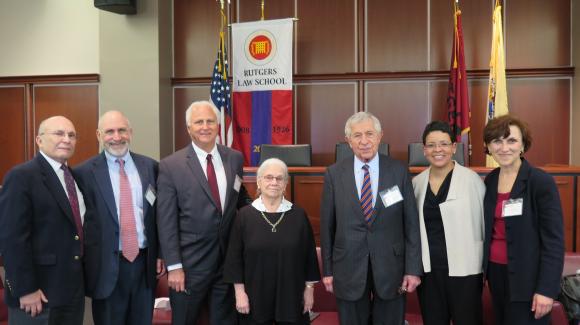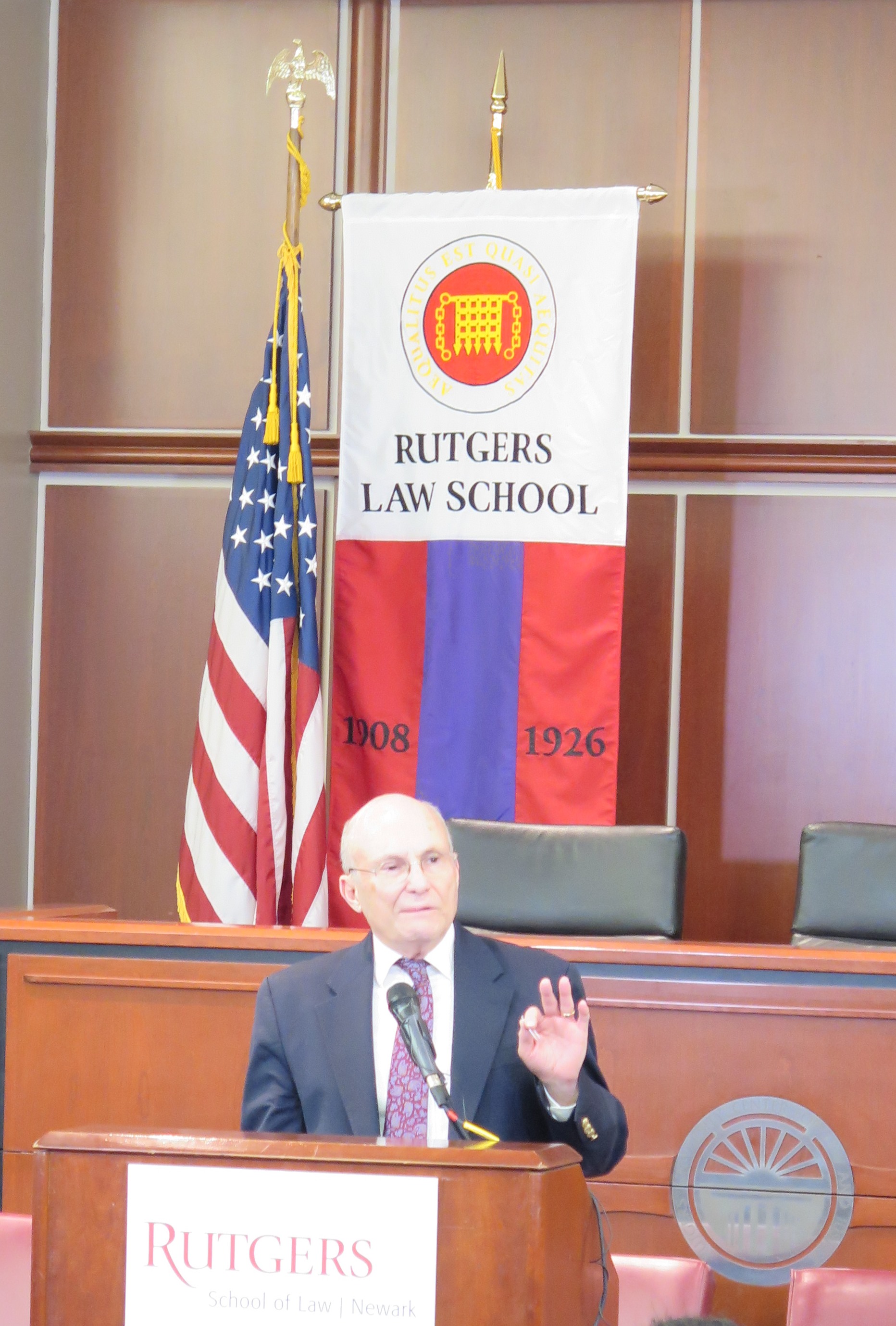
From left to right, Paul Tractenberg, Lawrence Lustberg, David Sciarra, Hon. Deborah Poritz, Hon.Gary Stein, Elise Boddie and Julia Sass Rubin
A panel of experts in public education lauded the work of Professor Emeritus Paul Tractenberg, who spent 46 years at Rutgers Law School and has worked tirelessly to achieve fairness in school funding so children in poorer urban school districts would have the same opportunities as children in wealthier districts.
The panel included former Chief Justice Deborah Poritz, former Associate Justice Gary Stein, Rutgers Law Professor Elise Boddie, David Sciarra, executive director of the Education Law Center, and Bloustein School Professor Julia Sass Rubin. The panel was moderated by attorney Lawrence Lustberg, a partner in Gibbons.
Tractenberg is the founder of the Education Law Center, which sued the state of New Jersey in the landmark case, Abbott v. Burke, to ensure that all children attending public schools in New Jersey received a thorough and efficient education.
Poritz talked about Abbott v. Burke and how the state Supreme Court’s ruling obligated the state to find ways to fund urban school districts and help children with issues such as hunger by offering free breakfasts or health issues by providing counseling. “It was an entire rethinking of what it meant to educate children who came to school hungry or in pain,” she recalled.
Poritz, the state’s former Attorney General, said she saw photographs of schools with leaky pipes, utility rooms being used as classrooms, and buildings with falling ceiling tiles. “It was extraordinary and frightening, how could we send children to school in these conditions and we did,” she said.
Former Justice Gary Stein talked about how Newark schools were highly regarded before World War II; thereafter, when people left the cities for the suburbs the schools deteriorated. Newark was included in the Abbott districts that were created after the court’s first ruling on the topic in 1985. Stein drew a chuckle when he asked Tractenberg how many times he’d argued the issue in front of the Supreme Court.
Stein also cited statistics based on the UCLA Civil Rights project that talked about the pervasive segregation that still exists in New Jersey’s public schools all these years later, noting that a majority of African-American and Latino students go to schools primarily with other African-Americans and Latinos. “It’s a national disgrace,” he said. “Segregation is pervasive.”
Professor Elise Boddie called Tractenberg, “a warrior for justice, a mentor and a friend.” She noted that schools in Alabama and Arkansas have become more desegregated than schools in New Jersey and said national studies show New Jersey is the fifth most segregated state in the country when it comes to public schools.
Some of the reasons are because of home sales, school boundaries, school transfer policies and attendance policies that she said ultimately keep African-American and Latino students separated from their Caucasian peers, “The problem is segregation undermines our democracy because we don’t see people as peers. If you’re always over there, we’re different. With integration, we experience one another as peers. It’s healthy for our democracy.”
The experts also talked about contemporary challenges in public education, including an increase in the number of charter schools in New Jersey and increasing federal support for school vouchers. Rubin talked about the rise in charter schools and how charter schools increase the segregation within a school district, by leaving behind minority children who continue to attend public schools.
After the panel, Brenda Liss, an attorney, moderated personal remarks made by Tractenberg’s friends and former colleagues to honor Tractenberg, who retired last May. Those who spoke included Poritz and Stein, Rutgers Law Professor Robert Holmes, former Chancellor Steven Diner, Sanford Jaffe, co-director for the Center for Negotiation and Conflict Resolution; David Nash, director for the Foundation for Educational Administration; New York special education attorney Neal Rosenberg, Felipe Chevana of Newark Legal Services, and Tractenberg himself.
Both events were recorded and can be viewed on the Rutgers Law School YouTube channel.
Tractenberg’s full remarks can also be found on the law school website.
